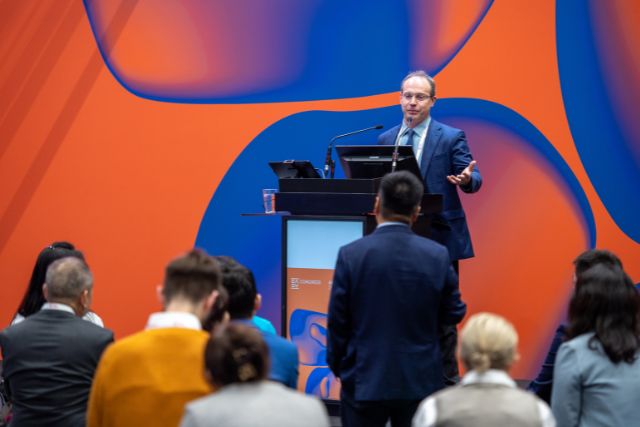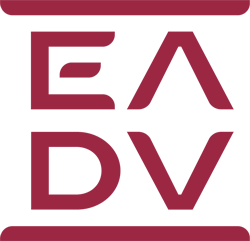Late breaking abstracts
The EADV Scientific Committee invites Authors to submit their abstracts for selection and inclusion as oral presentations in the “Late Breaking News” session, taking place during EADV Congress 2025 in Paris.
Key dates and deadlines
Positively selected abstracts will be presented orally at the “Late Breaking News” session, contributing to the cutting-edge content of EADV 2025 Congress Scientific Programme.
- Submissions opening 29 July 2025
- Submissions closing 21 August 2025
- Notifications date 29 August 2025
Selected abstracts presentation mode
The Authors of selected abstracts will be invited to hold a 15-minute presentation (12-minute presentation + 3 minutes for Q&A) during the “Late breaking news session”.
Please be informed that no e-posters can be neither submitted nor awarded for late-breaking news session.


How to prepare and submit your Late Breaking abstract
WHAT’S NEW:
- To correctly submit your abstract, you must use and fill in the HTML fields available on the submission platform. HTML fields for abstract body are divided by the system in the following sections: Introduction, Materials and Methods, Results, Conclusion.
- Maximum one table/ image file (.jpg, .gif, .png, .bmp, .webp file)can be included as attachment to each of the above HTML abstract sections. Please remember to directly include in the image file its related title, description, footnotes, or other references as deemed necessary.
- While submitting an abstract, the presenting author data must include a valid email contact. In case of positive selection, this contact will be used to notify the instructions and requirements of the oral presentation.
ADDITIONAL ABSTRACT REQUIREMENTS:
- Abstracts must be submitted in English.
- The abstract title should not be written entirely in capital letters.
- The size of the abstract is limited to 4,000 characters (spaces included). Please be informed that the title is free of character number limitation.
- Tables and figures (graphs) are allowed, and they are not taken into consideration for the character count limit.
- Pictures of patients and body parts are NOT allowed for inclusion in the abstract body. Abstract containing these kind of pictures will be rejected.
- No identifying features such as names of hospitals, medical schools, clinics, or cities may be listed in the title or text of the abstract. Do not include the names of authors either. Their names and affiliations (institutions) will be registered separately when submitting the abstract online.
- Check spelling and grammar carefully. Direct reproduction from your electronically submitted abstract text means that any errors in spelling, grammar or scientific data will be reproduced as submitted.
- Use generic names. The use of commercial drug names, brands and registered trademarks is strictly prohibited. Drugs should be referred to by the active substance or pharmacological designation.
- No mention of pharmaceutical company names should be included in the abstract.
Fees
Please note that the submission of each late breaking abstract has an administrative cost of 100€. The submission process is concluded with your payment of said amount to the EADV. Authors of rejected, incomplete or wrongly submitted abstracts will not be refunded and will not benefit from an oral presentation during the congress.
Submission criteria
Scientific data and results included in the late-breaking abstract submissions must be new and unpublished. No encore abstract submissions will be accepted for late-breaking news session.
Abstracts evaluation process
The EADV Scientific Programming Committee will review all late-breaking abstracts one by one and select the best ones submitted (for a predetermined number of slots).
If you have any further questions please contact us at [email protected]
